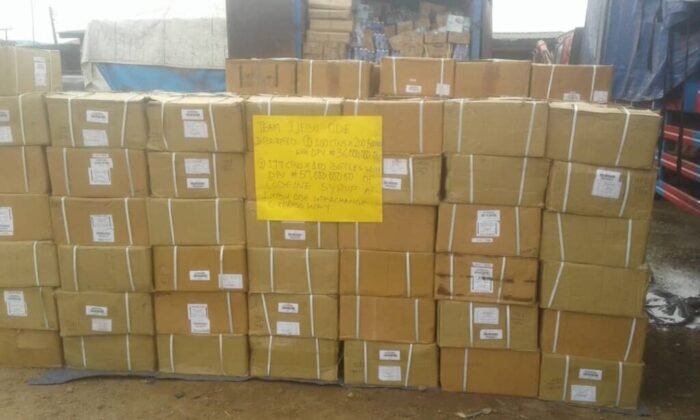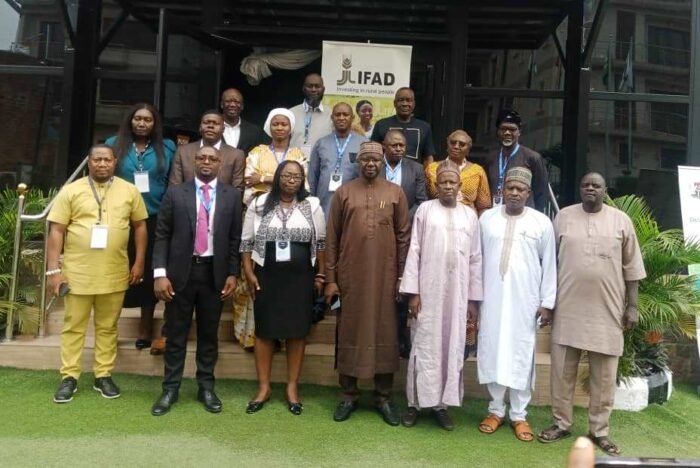370 total views today
By Justina Auta, News Agency of Nigeria (NAN)
Mrs Mercy Abu, 26 year-old mother of three and an Abuja resident said none of her babies was breastfed because she feared her breast would sag or lose shape due to breastfeeding.
She thinks she will lose her attraction to her husband if she loses her firm breast, something she assumes will not augur well for her marriage.
Mercy is like many women who share the same belief about breastfeeding and its relationship with sagging of breast.
They think it will make them unattractive, cause their spouses to dislike them, and push their partners to seek the embrace of women with firmer and standing breasts.
The myths attached to breastfeeding and saggy breasts compel some women to seek alternative means of providing milk for their babies, rather than allowing them to suckle their breasts.
They, therefore, resort to alternative sources of milk such as infant formula, cereal, and pap. Some of them even procure it from breast milk sellers.
Worried by the shape of their breasts some women go as far as undergoing surgeries to enhance their shape, size and firmness.
Sometimes, this comes at a cost as some of the procedures later fail and leave the breasts worse than they were.
However, nutritionists are of the opinion that breastfeeding does not cause the breast to sag nor does it trigger reduction in size and loss of shape.
They are of the opinion that though breasts go through many changes, especially ahead of childbirth, it is not a major factor in breast sagging as popularly held by many women.
Dr Temidayo Odebunmi, Head, Infant and Young Child Feeding, Nutrition Division, Federal Ministry of Health (FMoH), during a recent training for National Media Team on Nutrition dispelled the misconception that breastfeeding causes breast sagging and distortion.
According to her, certain factors such as little or no exercise, unbalanced diet; lack of good support like wearing bra and others contribute to the non-firmness of the breast.
“The breasts sag as a woman grows older, the firmness of a breast is affected by the age and other factors, not necessarily breastfeeding’’, she said.
Similarly, Mrs Grace Mogekwu, Chief Scientific Officer, Social Behavioral Change Communication (SBCC), FMoH, said breast change happens naturally with age.
She said as a woman grows older she likely begins to notice the loss of elasticity and firmness of breasts due to the hormonal changes arising from menopause.
She attributed breast sagging to weight loss or gain, exercise without support, genetics, gravity, number of pregnancies, size and shape and smoking.
As some women deny their infants breast, particularly in their first six months of their birth, experts say the practice has negative consequences for infants.
They say it is one of the factors that contribute to malnutrition, stunted growth, child mortality rates, and other health challenges among children.
Ms Patricia Deworitshe, Director, Media and Public Relations, Federal Ministry of Health, said only two per cent of infants under age 6 months found to be exclusively breastfed.
According to her, only 42 per cent of them are breastfed within the first hour of birth.
“To achieve a higher impact on malnutrition reduction such as stunting, the coverage of nutrition sensitive and nutrition specific interventions among the targeted population should be 80 per cent and above”, she advised.
She said balancing career demands, domestic chores and maintaining the household were among the challenges affecting effective breastfeeding among working class women.
She identified myths, early return to work after childbirth and lack of a conducive breastfeeding environment, especially in workplaces as hindrances to breastfeeding.
Mr Babajide Adebisi, Deputy Director, Nutrition International, while encouraging exclusive breastfeeding, urged nursing mothers to consume healthy food, maintain a healthy lifestyle and wear supporting clothes to ensure they lactate well and maintain their breast size and shape.
He said exclusive breastfeeding was the best source of nourishment for infants and young children.
According to him, it helps to protect children from several common childhood illnesses, physical, mental and cognitive growth and increases the bond between mother and child.
“The importance of breastfeeding cannot be overemphasised as it is beneficial both to the mother and her baby.
“Not only does it help to meet the baby’s nutritional needs it also creates a bond between the mother and the child“, he said.
The government in partnership with stakeholders have been carrying out advocacies to encourage exclusive breastfeeding.
They say breast milk is readily available, cheap, safe, clean and gives the child the first protection against many common childhood illnesses.
There have been advocacies to ensure breastfeeding beyond six months of exclusivity even up to two years of age or beyond.
Nigerian Governors’ Wives Forum (NGWF) has joined in the advocacy for the implementation of six-months paid maternity leave for nursing mothers and two weeks for fathers to support optimum breastfeeding practices.
Dr Olufolake Abdulrazak, wife of Kwara governor, who represented NGWF, at the launch and news briefing commemorating 2023 edition of World Breastfeeding Week called for an enabling environment for working class nursing mothers to breastfeed.
Also, Dr Nemat Hajeebhoy, UNICEF’s Chief Nutrition Officer, said a child’s development is not complete without breast milk.
Hajeebhoy also said the Convention on the Child Rights, stipulates access to adequate nutrition, which begins at birth within the first hour of breastfeeding, being essential as the first immunisation.
She explained that Nigeria has over 18 million employed women, but only nine per cent of the organisations in the country offer breastfeeding support.
Also, Dr Walter Mulombo, Country Representative, World Health Organisation (WHO) reiterated the commitment of the organisation towards raising awareness and galvanising action that enable breastfeeding in the workspace.
Mr Adebiyi Folorunsho, Permanent Secretary, FMoH, said breastfeeding provides energy and nutrients for the child’s development.
Adebiyi said it reduces the burden of malnutrition, infectious diseases and mortality, while also minimising the risk of obesity and chronic diseases in later life.
He added that breastfeeding mothers were also protected from chronic diseases including breast and ovarian cancer, Type 2 diabetes, as well as increased productivity at the workplace and saved monetary expenses on milk.
A body fit expert, Sunny Joshua, suggested certain practices that can keep the breast in good shape such as exercise, drinking plenty of water, healthy weight, practicing good posture, appropriate bra size, amongst others.
Though there are myths surrounding breastfeeding, the reality is that it is healthy for both mother and child hence it is important that every nursing mother should embrace it. (NANFeatures)
**If used please credit the writer and News Agency of Nigeria.















